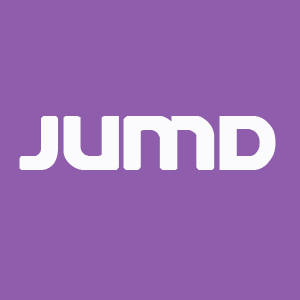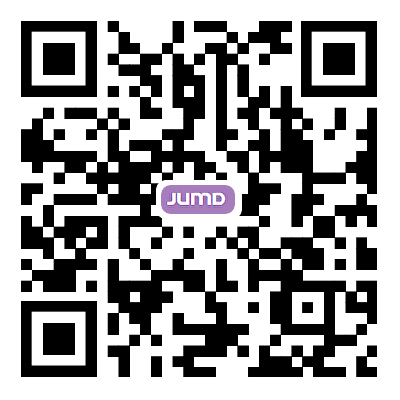2018 year in review
With the end of the 2018 in sight I am writing with great pleasure an editorial note for the Journal of Unexplored Medical Data (JUMD). I’d like to use this opportunity to look back at what we’ve accomplished with our journal.
The journey of any research - that every scientist usually experiences- begins with reviewing the literature by looking up journal articles to identify what is already known about their area of study, followed by framing a research question/hypothesis to test in his or her lab. That’s usually followed by managing results and finally writing up and publishing their findings. However, there is broad discontent and resentment amongst academics concerning the process of making medical academic information available to the scientific communities as it is driven by the access restrictions and the rise of article publishing charges of academic journals. Such difficulties put huge strains on researchers especially when they can’t publish their results in an affordable way.
Researchers should be busy pushing back the boundaries of human knowledge and solving scientific difficulties rather than struggling to find free access to specific literature or publishing their work within their means. Fortunately, not all academic publishers are greedy and some recently have invested greatly in research communication. For instance, the OAE publisher - specializing in biomedical peer-reviewed journals - is one of the few publishers that has fruitfully managed the evolution of ten different medical online and open-access journals. OAE considers that improving access to research is a moral issue that creates an equitable system of knowledge sharing. Having this in mind they offer scientists and research institutions free of charge publishing in all of their ten different medical journals and JUMD is one of them. Moreover, the publisher allows free access - on its website - to numerous empirical research data-driven analytics that could help researchers update and assess their research efficiency, performance and progress.
JUMD is an international peer-reviewed, open access online journal that publishes original research articles, case studies, review articles, pilot studies and various communications in the field of medical science. What makes JUMD an exceptional journal is that it allows the publication of not only the positive but also the negative scientific results.
There is ample useful information based on genuine and costly experimentation that has never been published because it simply reports negative data or results that do not add up to a complete story or sometimes because it is “merely” confirmatory. Researchers usually don’t submit negative results for publication as they consider such results not in the scope of traditional journals and less likely to provoke any significant interest compared to positive ones even though they could be relevant to other investigators.
Through a clear objective and very specific goals, the JUMD editorial team seeks to make such results available to the scientific community free of charge in a peer-reviewed journal.
Not reporting such results could create bias and disfigure the clinical interpretation of the published evidence. Furthermore, when such research is not publicly reported, colleagues in the same field may never know about it and they may unnecessarily repeat the same experiments, obviously wasting time and resources. Researchers can build on the mistakes of others and the failure of someone’s research project could contribute to others’ success.
Therefore, if your research failed to confirm the efficacy of a treatment or your results didn’t support your hypothesis it could be that other scientists are eager to know about it. If the expected effect in your experiment was not observed or you repeated previously published work and your results supported or opposed the previously published research, JUMD gives you a chance to publish such data and make it visible and accessible to your fellow researchers. Importantly, it has to be known that JUMD allows for meticulous peer review that enables all submitted papers to be carefully scrutinized. It also ensures that articles published by their journals are discoverable, shareable and able to be accessed easily.
When I agreed to take on the editorial responsibilities for JUMD I knew that it could be a daunting prospect and I understood that the journey of introducing a new journal is usually arduous and full of struggles. I also realized that to achieve success with the idea of publishing negative besides positive results would not be an easy task while many thought that JUMD would be exceptionally vulnerable. But fortunately, JUMD proved all of us wrong. In the short period since the journal was launched it has rapidly developed, swiftly expanded and attracted thousands of readers. It’s been wonderful watching JUMD grow in such a short period of time. Yes, at the beginning there weren’t enough submissions or submitted articles weren’t quite up to our standard. However, we always try to hold the stick in the middle by not publishing submissions that obviously fall short while on the other hand if we see that a submission has potential, then we do our utmost to work with the authors to lick their manuscripts into shape. Our main aim has always been quality not quantity.
The scientific excellence and the notable accomplishments achieved so far by our journal are the success of every single person on the journal’s editorial and production teams, the reviewers, the authors as well as the OAE board members who worked together to progress the future of science one step further by supporting JUMD.
I would like to genuinely wish all our readers, authors and especially our hardworking editorial and production team a very happy New Year! A big thank you goes out to all our reviewers who have handled our publication in a very professional way. We are grateful for all the time and effort that our editorial and production team have spent upholding the scientific quality of our journal! Thank you all for your contributions and support.
You have made my work on JUMD worthwhile. I look forward to your continued cooperation and support as well as to your valuable suggestions and criticism in 2019!
Best regards,
Tarek Shalaby, MD-PhD
Editor-in-Chief of the JUMD
For more information about the journal, please visit: http://jumdjournal.net/
Declarations
Authors’ contributionsDr. Tarek Shalaby contributed solely to the editorial.
Availability of data and materialsNot applicable.
Financial support and sponsorshipNone.
Conflicts of interestThe author declared that there are no conflicts of interest.
Ethical approval and consent to participateNot applicable.
Consent for publicationNot applicable.
Copyright© The Author(s) 2019.
Cite This Article
How to Cite
Download Citation
Export Citation File:
Type of Import
Tips on Downloading Citation
Citation Manager File Format
Type of Import
Direct Import: When the Direct Import option is selected (the default state), a dialogue box will give you the option to Save or Open the downloaded citation data. Choosing Open will either launch your citation manager or give you a choice of applications with which to use the metadata. The Save option saves the file locally for later use.
Indirect Import: When the Indirect Import option is selected, the metadata is displayed and may be copied and pasted as needed.













Comments
Comments must be written in English. Spam, offensive content, impersonation, and private information will not be permitted. If any comment is reported and identified as inappropriate content by OAE staff, the comment will be removed without notice. If you have any queries or need any help, please contact us at [email protected].